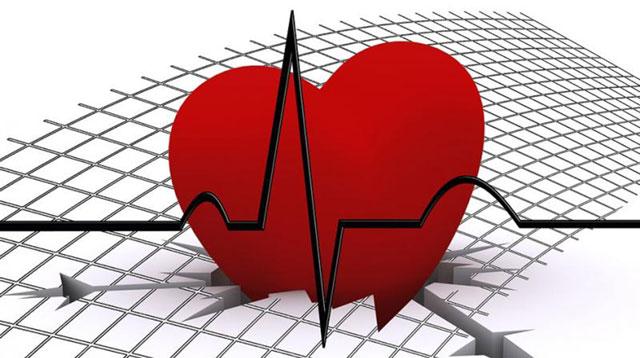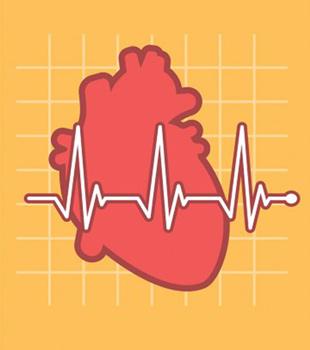You are here
Alcohol, caffeine are common triggers of irregular heart rhythm
By Reuters - Apr 01,2019 - Last updated at Apr 01,2019

Photo courtesy of everydayhealth.com
The most common triggers of atrial fibrillation — an irregular heart rhythm that’s a leading cause of stroke — are avoidable behaviours like drinking alcohol or coffee, a recent study suggests.
People don’t always realise when they’re experiencing atrial fibrillation, or AFib, but some feel unpleasant chest palpitations or a racing, irregular heartbeat.
Some patients have AFib 24 hours a day. In others, the irregular heartbeat is “paroxysmal”, that is, it comes and goes. For the current study, reported in the journal Heart Rhythm, researchers surveyed 1,295 patients with symptomatic paroxysmal AFib and found the most common behaviours that triggered episodes of the arrhythmia were alcohol consumption, caffeine consumption and exercise.
The survey asked about 11 possible triggers: alcohol, caffeine, lack of sleep, exercise, not exercising, consuming cold beverages, consuming cold foods, high sodium diet, consuming large meals, dehydration, and lying on one’s left side.
About three-fourths of the patients said at least one of those behaviours triggered AFib some or all of the time.
Alcohol consumption was cited by 35 per cent, followed by coffee drinking (28 per cent), exercise (23 per cent) and lack of sleep (21 per cent).
The researchers say it’s possible the behaviours don’t actually trigger the episodes but instead make the symptoms worse.
The study wasn’t designed to tell whether cutting back on these triggers would reduce the frequency of AFib episodes.
Still, coauthor Dr Gregory Marcus from University of California, San Francisco told Reuters Health, “Many, if not most of these triggers are modifiable, and we feel theoretically the patient does have some power to potentially influence the probability of an episode occurring.”
Dr Deepak Bhat, a cardiologist at Brigham and Women’s Hospital Heart and Vascular Centre in Boston who was not associated with the study, agreed. He told Reuters Health by phone, “Importantly, the information in this paper is actionable. People with episodes of atrial fibrillation that appear to be triggered by alcohol or caffeine, for example, can avoid these.”
Associations between alcohol and AFib are well known, but the link with coffee is controversial, Bhat said. “Some experts dispute that association... though I have seen it in many patients,” he added.
Bhat noted that while exercise is a healthy habit, strenuous exercise after long periods of not exercising has been known to trigger heart arrhythmias.
Marcus said the idea for the research came from a summit that brought together patients and researchers to identify topics patients thought were not well covered by the scientific community. Patients with atrial fibrillation unanimously agreed that they wanted to know more about triggers.
“While there has been quite a bit of research investigating the root cause of the first diagnosis of [AFib], there has not been sufficient investigation into understanding why an episode happens when it happens,” Marcus said.
In AFib, the heart’s two small upper chambers beat irregularly and too fast, “quivering like a bowl of gelatin”, according to the American Heart Association. As a result, the heart can’t pump properly and the body doesn’t get enough oxygen-carrying blood. AFib can lead to serious medical problems including stroke and heart failure. Treatments include medication to regulate the heart rate or heart rhythm, blood thinners to help prevent clots from forming, and in some cases, electric shocks to reset the beat of the heart.
Related Articles
The risk of developing an irregular heart rhythm increases as people age and become overweight or obese, spiking after age 50 for men and ag
Eating a small amount of chocolate every week or so may decrease the risk of a common and serious type of irregular heart rhythm, according
The commonly used painkiller diclofenac may be linked with an increased risk of heart problems, a large Danish study suggests. Diclofen


















